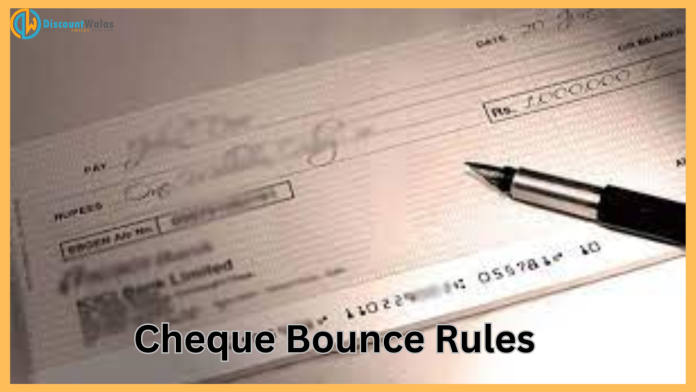
Cheque Bounce Rules: Most people are not aware of what to do if a check bounces and when can Section 138 be used? In such a situation, today in our news we are telling you what steps you should take and what things you should keep in mind when a Cheque bounces…
Payment by Cheque is still in vogue in rapidly digitalising India. In such a situation, it is often heard that someone’s Cheque has bounced. There are many people who do not know what to do if a Cheque bounces and when can they use Section 138?
If it has ever happened to you that you have to take money from someone and the Cheque given by them has bounced, then there is no need to panic. Today we are telling you here what steps you should take and what things you should keep in mind when a cheCheque ck bounces.
What does a Cheque bounce mean ?
Whenever we give a Cheque to someone for money transaction and there is not sufficient amount in the account then the Cheque bounces. That means the other person does not get the money at the right time. If a Cheque bounces, both parties may face a lot of trouble and financial loss. Therefore, it is very important that you know all the rules and regulations regarding Cheque bounce.
Some important things-
Any Cheque is valid only for 3 months. After three months that Cheque is no longer valid.
If you have taken any goods or money from someone, then you can use the Cheque to pay its price or to return the money.
A Cheque can also be given for donation to any NGO or organization.
Post dated Cheque can also be deposited as security.
When a Cheque bounces, you get a receipt from the bank which contains complete information about the Cheque and the reason for bounce.
A notice has to be sent to the debtor within thirty days of the Cheque bouncing. If no response is received then after 15 days the creditor can send a notice to the debtor for Cheque bounce and file a case.
In case of Cheque bounce, there is a punishment of two years and the debtor may have to repay the remaining amount with interest.
What is Section 138?
If the debtor does not pay the payment even for 1 month after the Cheque bounces and does not pay even after sending a legal notice, then the creditor can file a case with the help of his lawyer. The creditor can file his case under Section 138 of the Negotiable Instruments Act, 1881. Failure to return the payment on time will result in a criminal complaint being filed. Remember that if legal recovery of any kind of loan or outstanding money is not completed or in any transaction or business between two parties, if payment is not received and the Cheque bounces, then a legal case under section 138 can be filed. can be entered.
Also, if a Cheque bounces of money lent to a friend or anyone, a case can be filed under section 138. If a Cheque given for the discharge of a loan bounces, a case under Section 138 can also be filed against it. Under this section, you may have to pay a prison sentence of two years and double the amount with interest. A civil case can be filed in the same city where your Cheque has bounced and where you reside.
Kapil Sankhala, Managing Partner of Sankhala & Associates, says that India is moving towards a cashless economy, in such a situation a special court should be formed for Cheque bounce cases, where the decision can be given as soon as possible through the fast track court. Keep in mind that before doing any kind of transaction, always Cheque the given Cheque carefully. Also, make sure that there is sufficient amount in your account.





